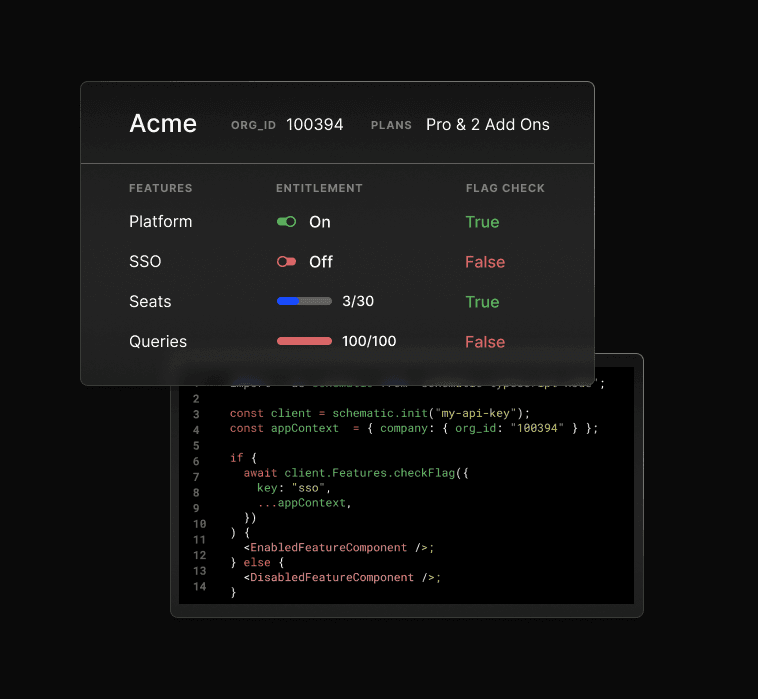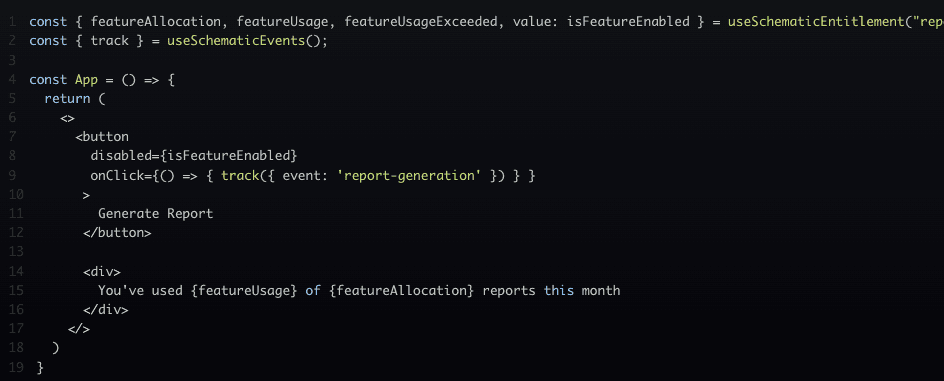

Every SaaS company has entitlements. They're the rules that define what a customer can access based on their plan, subscription, or contract.
Almost no one talks about them. Yet nearly everyone builds them in-house — even though they’re not core to product value.
That decision leads to real problems:
Entitlements get hardcoded into app logic
Developers get pulled into billing work they don’t want to do
Monetization gets slower and harder to evolve
In a world where small teams are shipping faster with AI tools, hardcoding entitlements is a liability. You’re locking your business into:
An infinite roadmap of plan logic and exceptions
Developer resentment and burnout
A lack of pricing and packaging agility — which kills GTM velocity
We’ve been pushing hard to help teams understand why entitlements matter — and we’re not alone. Here’s a roundup of some of the best writing and conversation on this topic.

Shar Dara (ex-Stripe, Vercel) How do you know what features your users should access?
Fynn Glover (Schematic) Why every SaaS app needs an entitlement layer
Arnon Shimoni (Paid) Why you should separate billing from entitlements
Sandeep Jain (MonetizeNow) Entitlements, Part 1 Entitlements, Part 2
AWS SaaS Factory + LocalStack Simple and flexible SaaS entitlement management
Calendly / Mailchimp
Expo / LaunchDarkly
Supabase
Localstack
Salesloft
Saleo
Koala / Segment
Pagos
Pangea
Logik.ai
Crossbeam / HubSpot
Firetiger / Cloudflare
Thomas Sellers (UiPath, Citrix) — Leading Monetization at Scale
David Caughman (Docker, Stripe, Simon-Kucher) — Pricing as Product
If you’re building entitlements in-house in 2025, make sure you’ve thought through the real cost — in developer time, monetization agility, and GTM speed.
If you want to talk entitlements or share your setup, drop us a note or get started today.
What are entitlements in a SaaS product and why do they matter? Entitlements are the rules that define what a customer can access based on their plan, subscription, or contract. They control features, usage, limits, and access — and are essential to enforcing pricing and packaging.
Why is hardcoding entitlements a bad idea? Hardcoded entitlements create technical debt, slow down monetization changes, and burden developers with non-core work. They make it difficult to experiment with pricing or launch new GTM strategies.
How does building entitlements in-house impact engineering and GTM teams? It leads to developer burnout, brittle application logic, and a lack of agility in pricing. Small changes can require code deployments, slowing down both product and commercial velocity.
What are the benefits of externalizing entitlement logic from application code? Decoupling entitlements allows teams to manage access rules centrally, iterate faster, and avoid an infinite backlog of plan exceptions and overrides. It supports cleaner code and more flexible monetization.
Who else is thinking about entitlements and how are they handling it? Leaders from companies like Stripe, Vercel, Supabase, Calendly, and Mailchimp have all discussed their entitlement strategies — from separating billing logic to evolving usage-based pricing models.
What should teams consider before building entitlements in-house in 2025? They should weigh the true cost — not just in build time, but in long-term maintenance, slower GTM, developer frustration, and lost revenue from lack of pricing flexibility.